Inequality in the UK in terms of family incomes – implications for the cost of living crisis
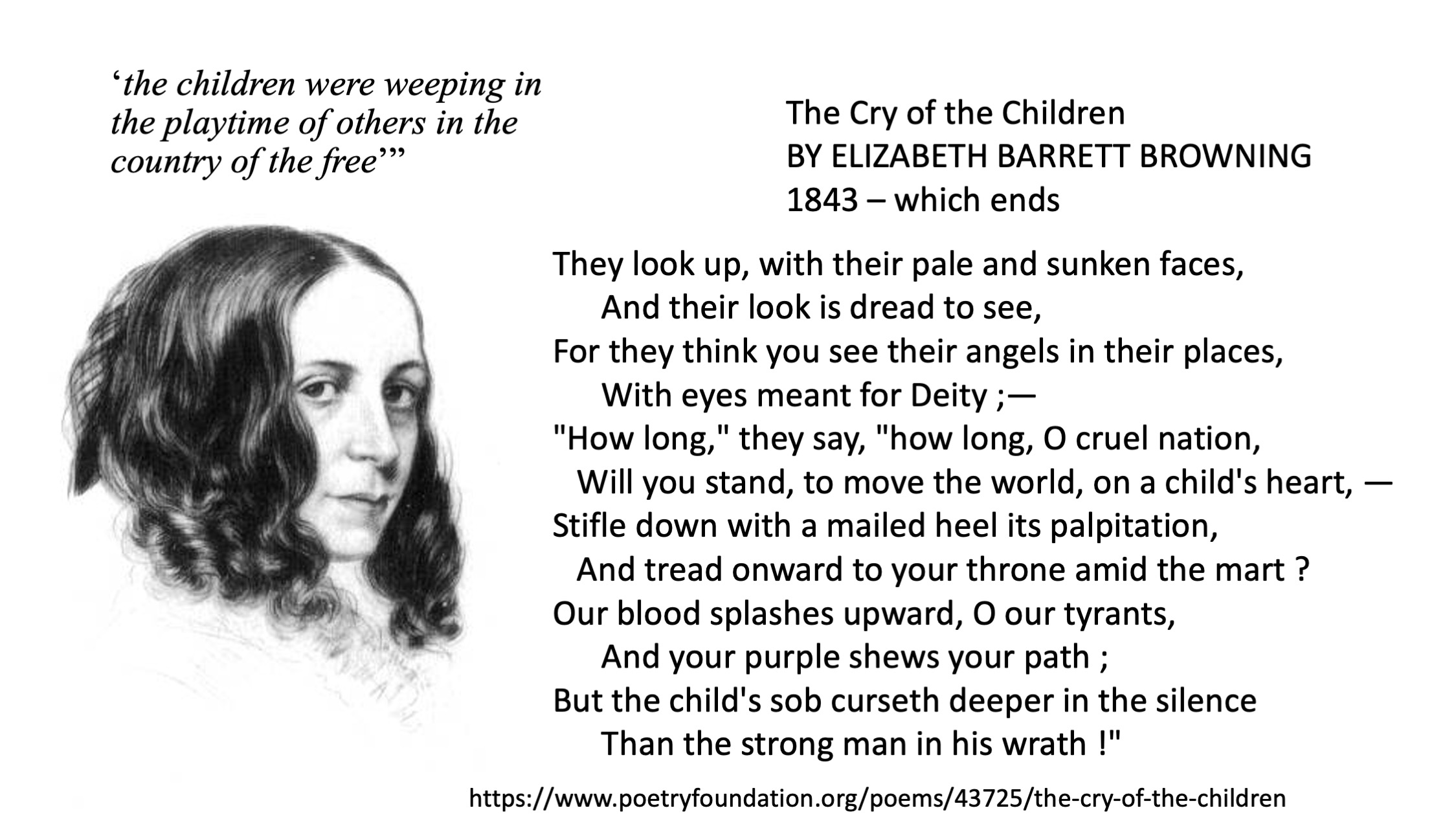
Thank you so much for the invitation to speak. You might have thought that what I am here to speak about is going to be quite depressing, but I am going to try and make it less so.
The reason I can make it not so depressing is some really good news that I suspect none of you have heard: since November 2022, the government have started to make payments of £25 a week to families for each child they have under the age of 16, if they are claiming any kind of benefit or Universal Credit. Most of those people are in work, of course, and for them it is an enormous amount of money. If you have three kids aged under 16, that is almost £4,000 more a year, so this is quite an incredible thing that has just happened. I am going to try and show you why it is so incredible.
‘[I]t aims at a certain measure of social equality and chiefly equality of material well-being’ – a levelling up of people, especially children. The policy has other ‘ultimate aims – as greater equality of culture, leisure, liberty, and happiness” – not just to pay for heating and food. It could also be seen to ‘aim at greater equality, but by no means at perfect of absolute equality’. However, no child grows up extremely poor. It recognises that ‘a juster distribution, and, in general, a better and happier state of things, can only be brought about by the action and authority of the State.’ – That it is the state that has to step in now. Part of wider ‘progressive reforms and the slow introduction of greater equality of opportunities, and of greater equity in social conditions’.
I will tell you later where these quotations come from, but they give you an idea of what this policy is really about. You may well know this about our current situation, but if you do not, you should do. These statistics are from The Sun and the Daily Mail: almost half of all adults in the UK receive so little income that they do not pay any income tax. That is the country we live in. Most children are living below, or only a few pennies a day above, various poverty lines. You could argue whether it is 30 per cent or 40 per cent, but I would say it is nearer 50 per cent of children living in poverty.
The above words are the introduction to an edited transcript of a talk given on Tuesday 14 March, 2023
For a PDF of the full article and where it was originally read out click here.
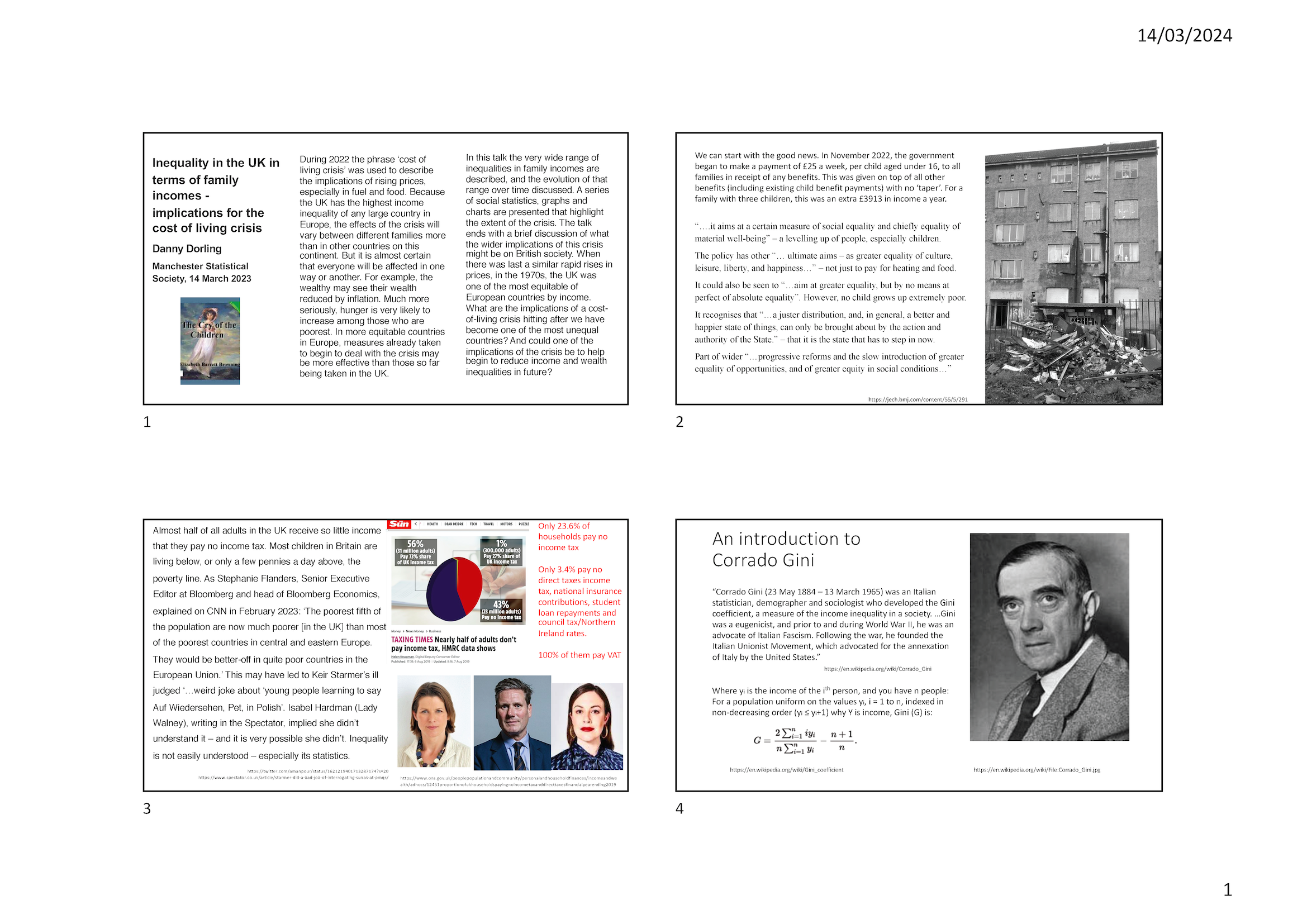
slides 1-4: Dorling, D. (2024) Inequality in the UK in terms of family incomes – implications for the cost of living crisis, Transactions of the Manchester Statistical Society 2022-2023, vol.190, pp.67-85, https://manstatsoc.org/2022/09/16/190th-session/
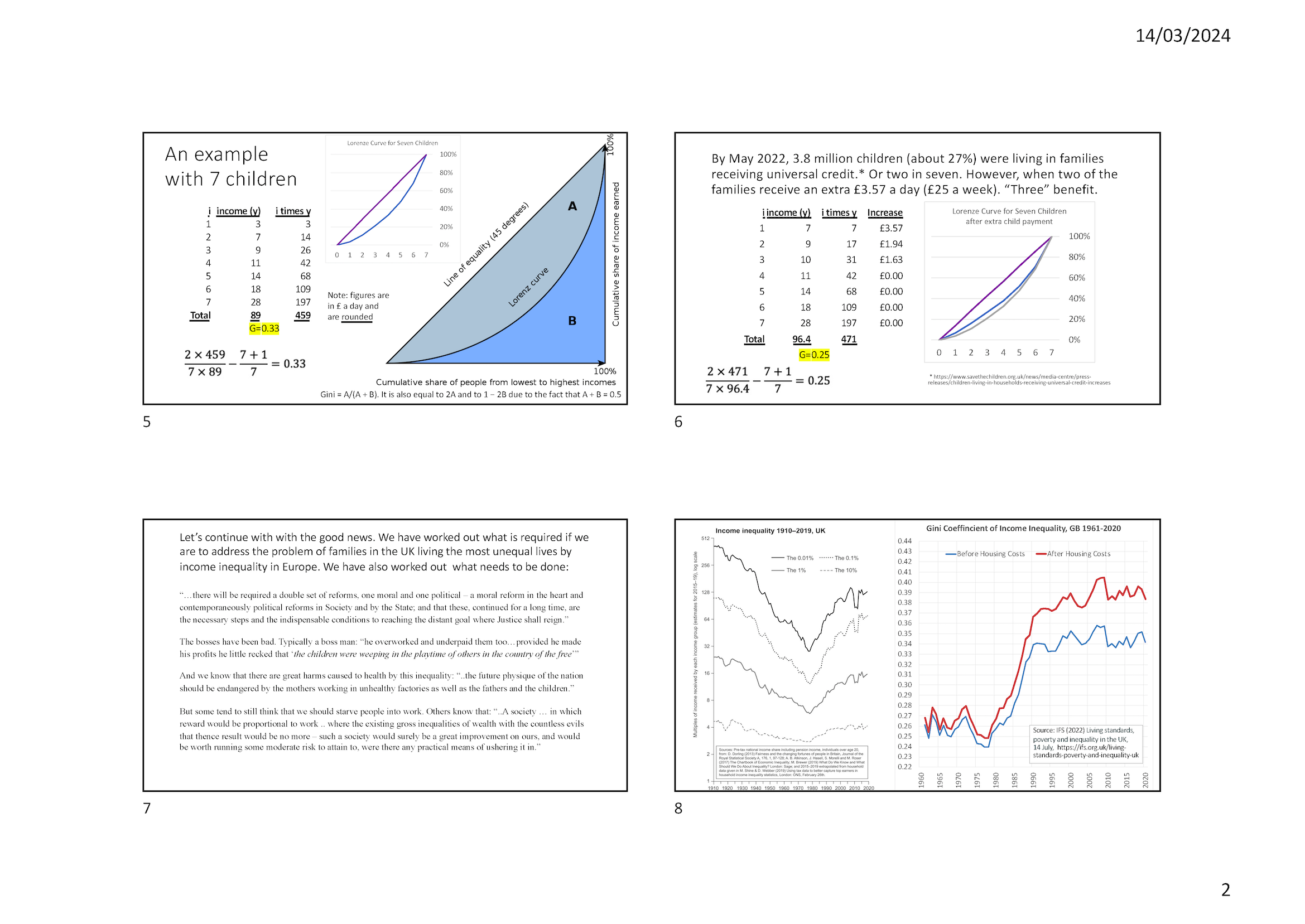
Slides 5-8
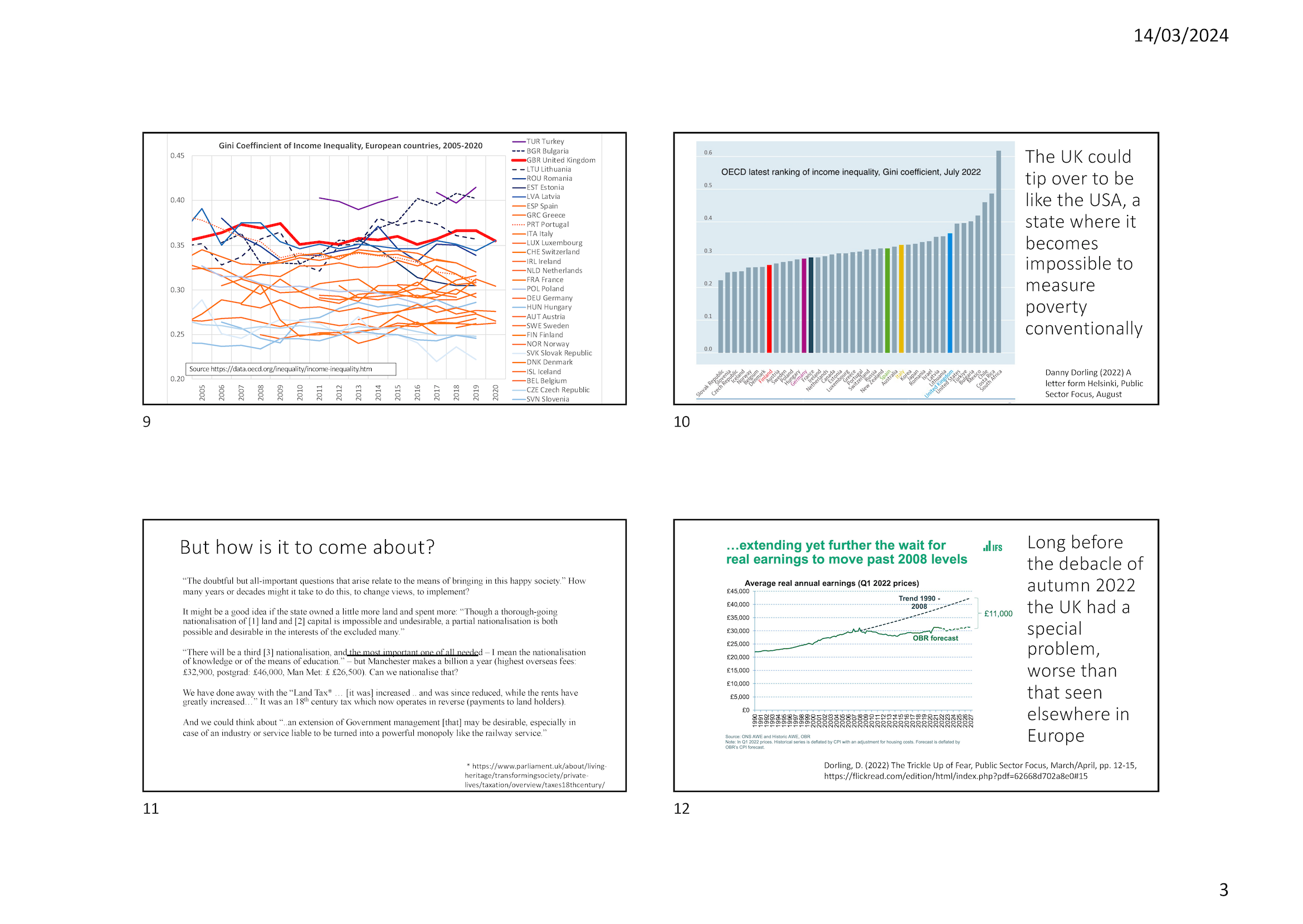
Slides 9-12
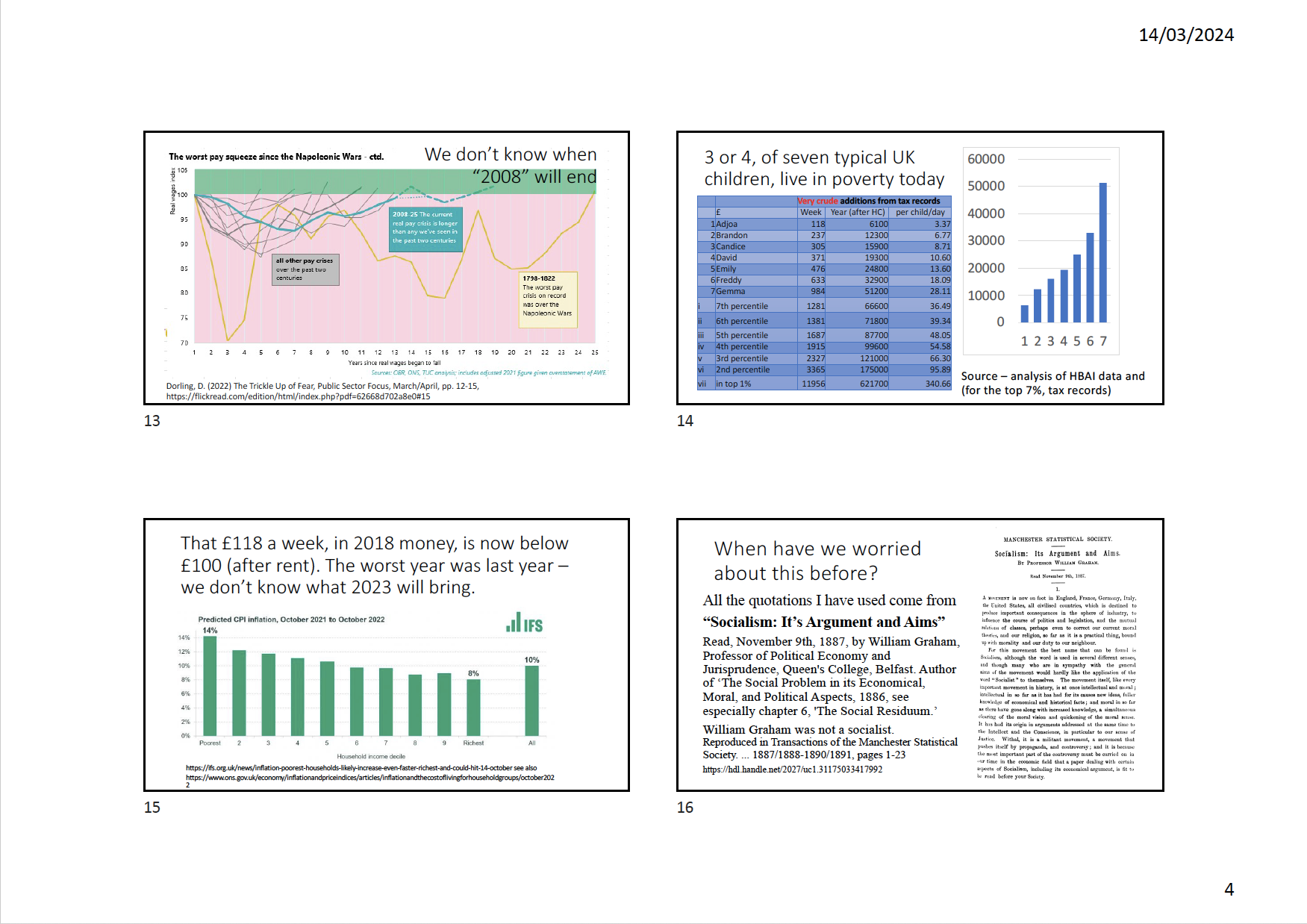
Slides 13-16
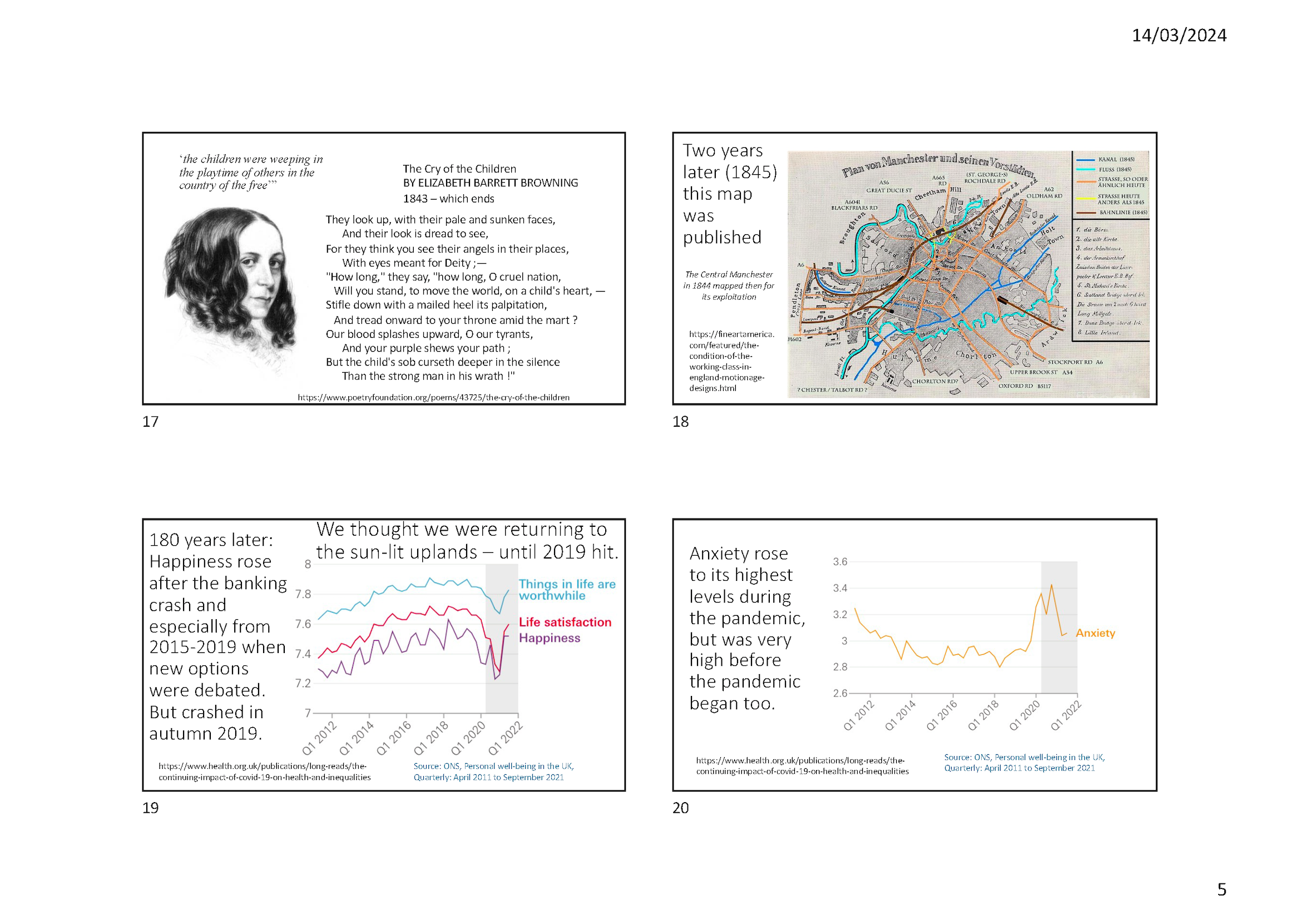
Slides 17-20
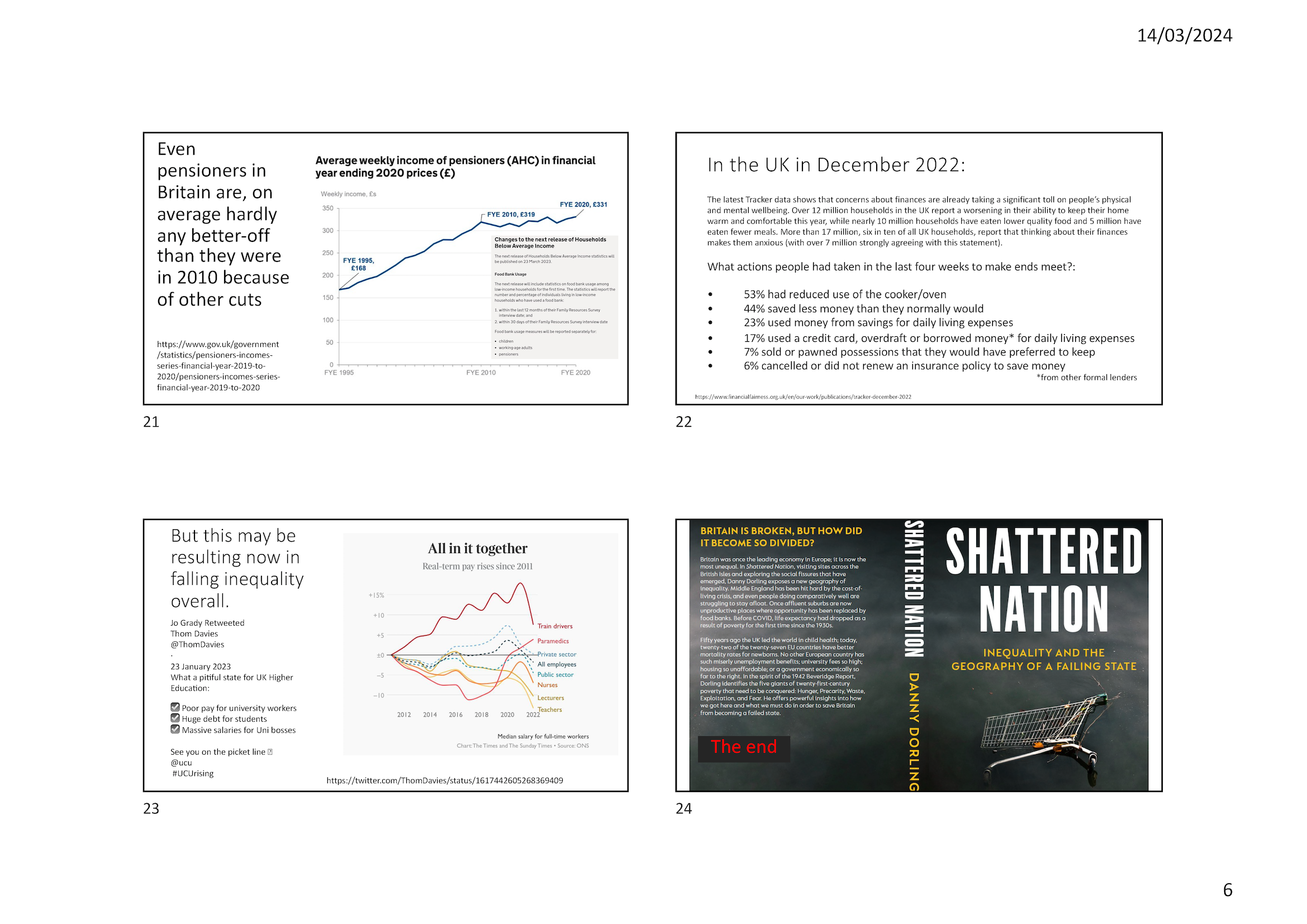
Slides 21-24
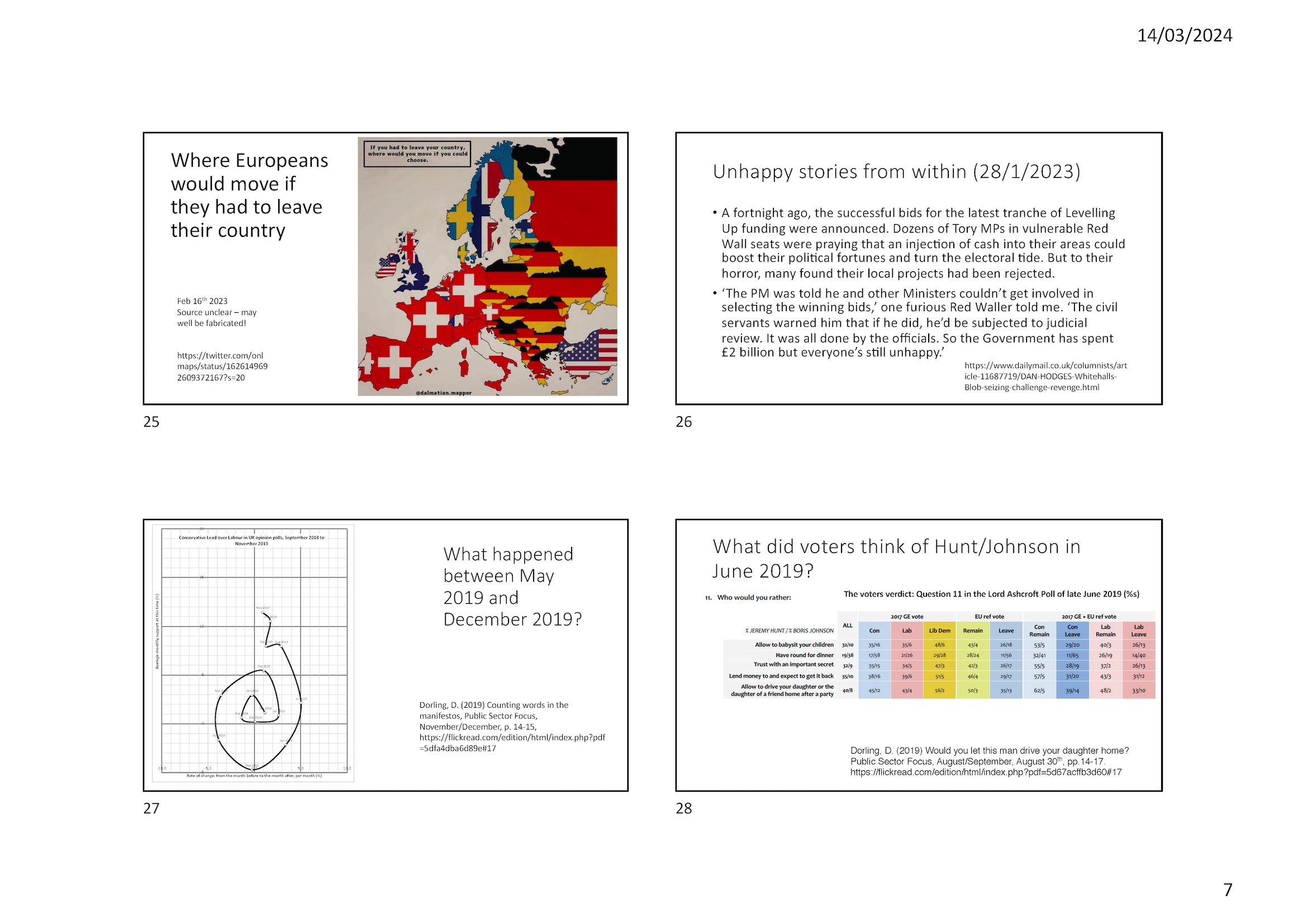
Slides 25-28
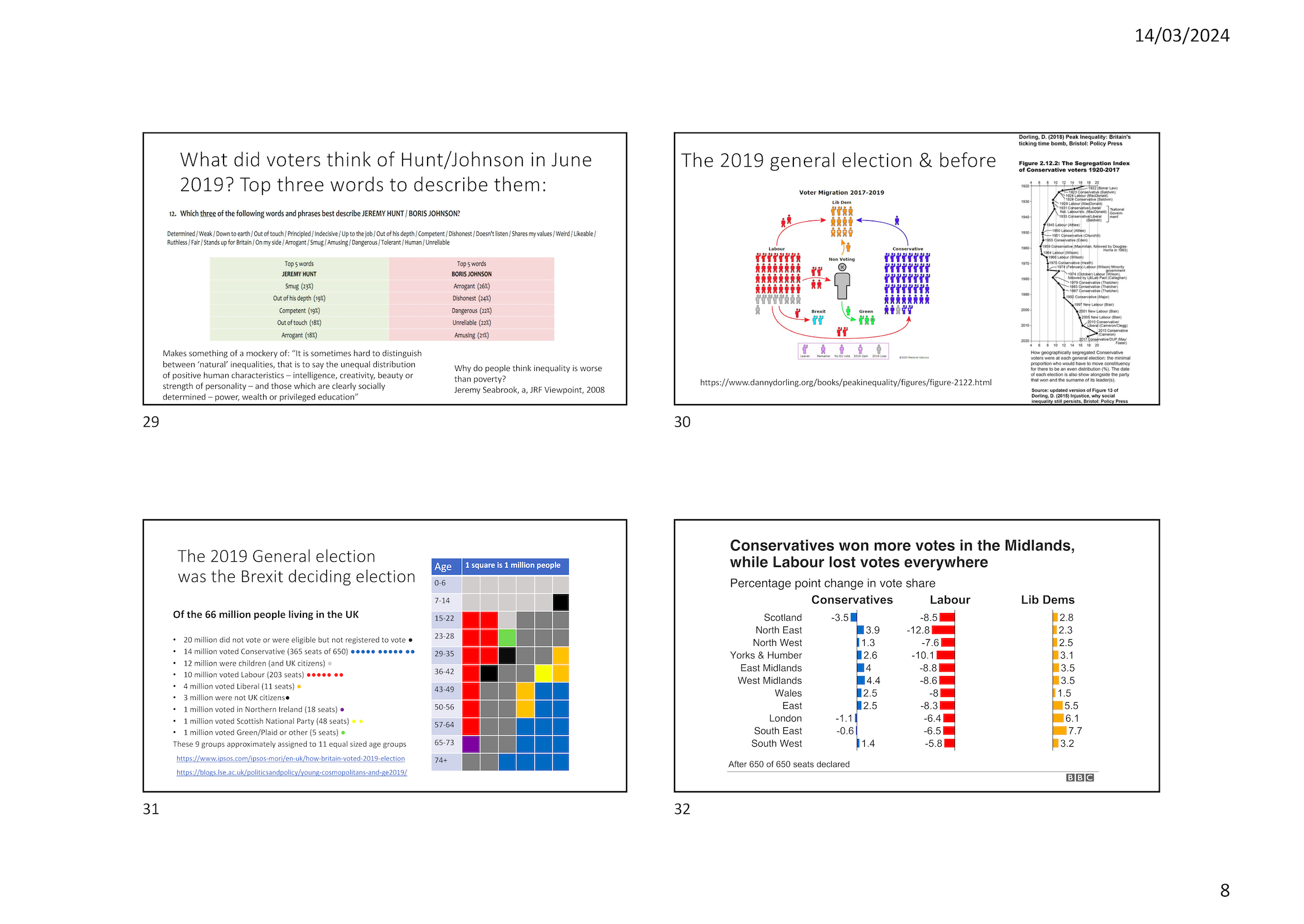
Slides 29-32
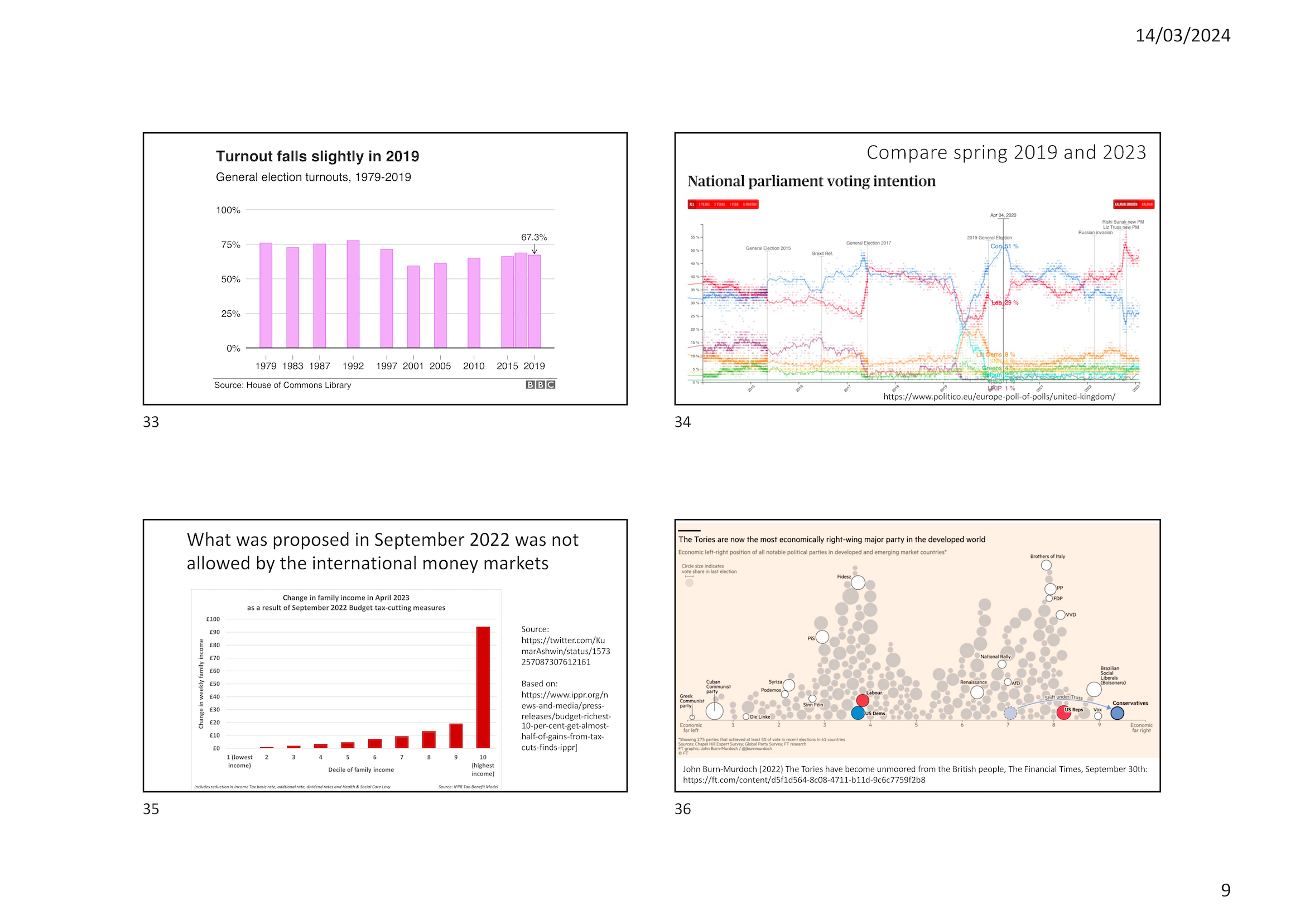
Slides 33-36.